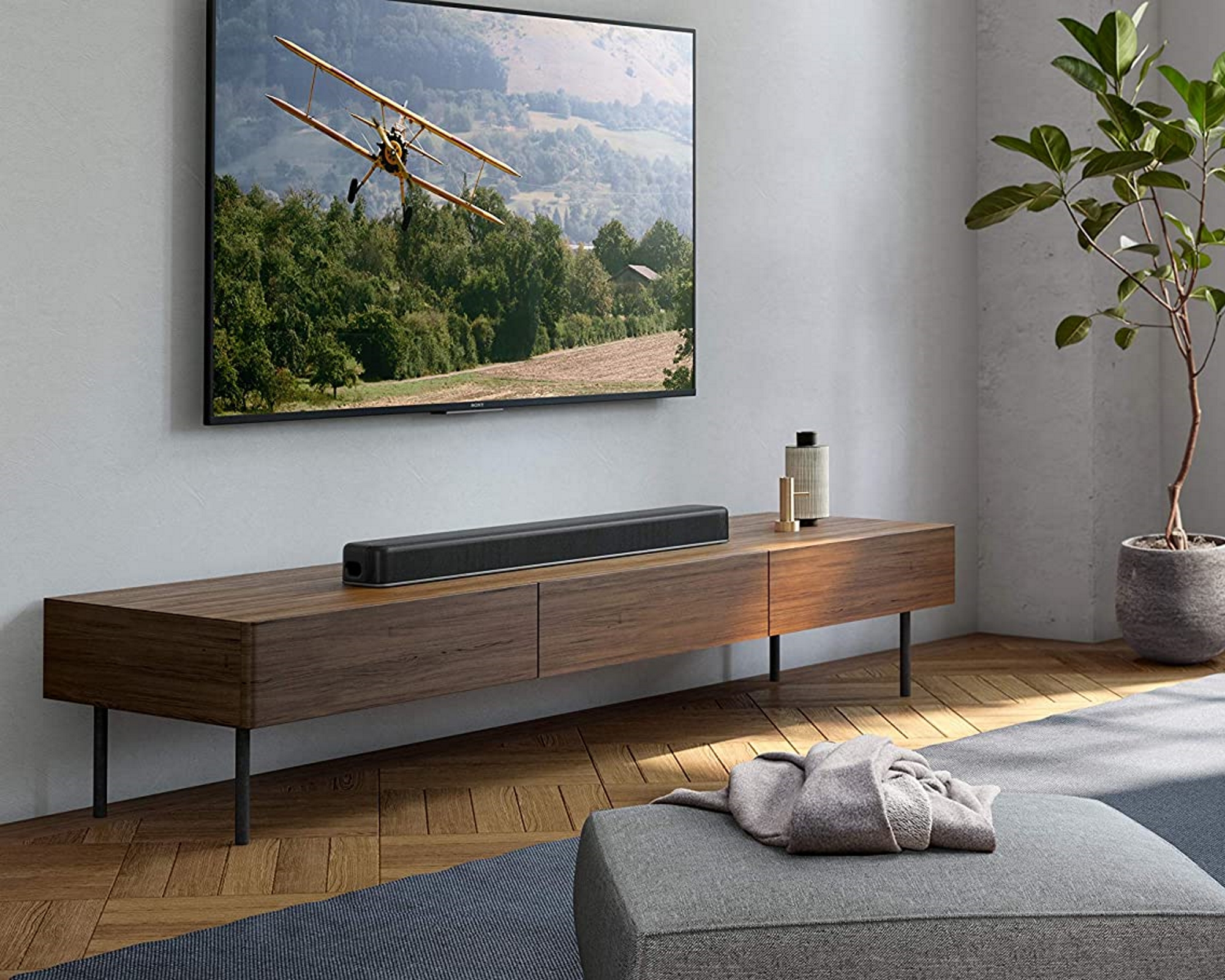Can I use a soundbar as a central speaker? Yes but you shouldn’t, says our expert – here's why
While you technically can use some soundbars as a central speaker in a surround sound system, you really shouldn’t


The Livingetc newsletters are your inside source for what’s shaping interiors now - and what’s next. Discover trend forecasts, smart style ideas, and curated shopping inspiration that brings design to life. Subscribe today and stay ahead of the curve.
You are now subscribed
Your newsletter sign-up was successful
Can you use a soundbar as a central speaker? If it has the right ports, you might be able to connect it as a spoof middle speaker in a surround sound system.
However, it’s not really a good idea, even if you opt for the best soundbar around. Read on to find out why.
Why you shouldn’t use a soundbar as a central speaker
There is a difference between a soundbar and surround sound. While a soundbar may just look like any other speaker, it’s designed to mimic a stereo or surround sound setup without actually surrounding you.
That means there are actually a number of speakers inside. The exact number will depend on the specifications: a 2.1 soundbar has two channels and a subwoofer, but 5.1 and even 7.1 soundbars exist to emulate more complicated setups without the footprint of a full surround system.
The actual number doesn’t really matter: the point is that a central speaker has a single channel, because it’s intended to be used in tandem with other speakers dotted around the room. If you put a soundbar in its place, the single-channel audio will be played out of multiple internal speakers.
Why does that matter? Well, to mimic surround sound, a soundbar tilts the various internal speakers at different angles to bounce audio off your walls and the ceiling. As the central speaker in a true surround sound setup is largely used for dialogue, this will be muddied with the left and right channels to make the overall profile significantly worse.
Alternatively, you might be able to connect the left and right channels of the soundbar to the receiver, using them for their original purpose. That sounds like it could solve the problem, but as the left and right channels will be built into the soundbar, they’ll likely be out of sync with your other dedicated speakers leaving quiet areas of the room which, again, won’t sound great.
The Livingetc newsletters are your inside source for what’s shaping interiors now - and what’s next. Discover trend forecasts, smart style ideas, and curated shopping inspiration that brings design to life. Subscribe today and stay ahead of the curve.
Sound quality aside, there’s another reason you may want to avoid using your soundbar as a central speaker: a risk of damaging your hardware - something you'll want to avoid if you've invested in the best surround sound system.
To be clear, this is only a problem if you use an active soundbar — but most are. That means they have their own built-in amplifier to boost the line-level signal emitted by your TV. If your soundbar has an external power supply, it’s active.
The problem is that surround sound speakers are passive, and receivers are not designed to support those that already have their own power supply. If you were to connect an active soundbar to a surround sound receiver you’d be amplifying it twice, which is more power than it’s intended to handle. There are ways around this, but it’s messy. Very messy.
Of course, if you do have a passive soundbar, there’s nothing stopping you from using it as a central speaker… other than the possible hit to sound quality we outlined above.
Why do you want to use a soundbar as a central speaker?
The real question is why do you want to use your soundbar as a central speaker in the first place?
If it’s because you have a soundbar lying around, and you don’t want to waste it, then it’s better served boosting the sound of a second TV or being sold/given away to someone who can make use of it on their setup.
If you’re asking because you like the sleek look of a long, thin speaker in front of your TV, then the good news is that there are central speakers which look like soundbars. The Polk XT35 and the Klipsch R-30C are examples of central speakers that keep the soundbar aesthetic, without the obvious drawbacks for your surround sound system. Ultimately, such dedicated central speakers are simply a far better solution.

Freelance contributor Alan has been writing about tech for over a decade, covering phones, drones and everything in between. Previously Deputy Editor of tech site Alphr, his words are found all over the web and in the occasional magazine too. He often writes for T3 and Tom's Guide. When not weighing up the pros and cons of the latest smartwatch, you'll probably find him tackling his ever-growing games backlog. Or, more likely, playing Spelunky for the millionth time.